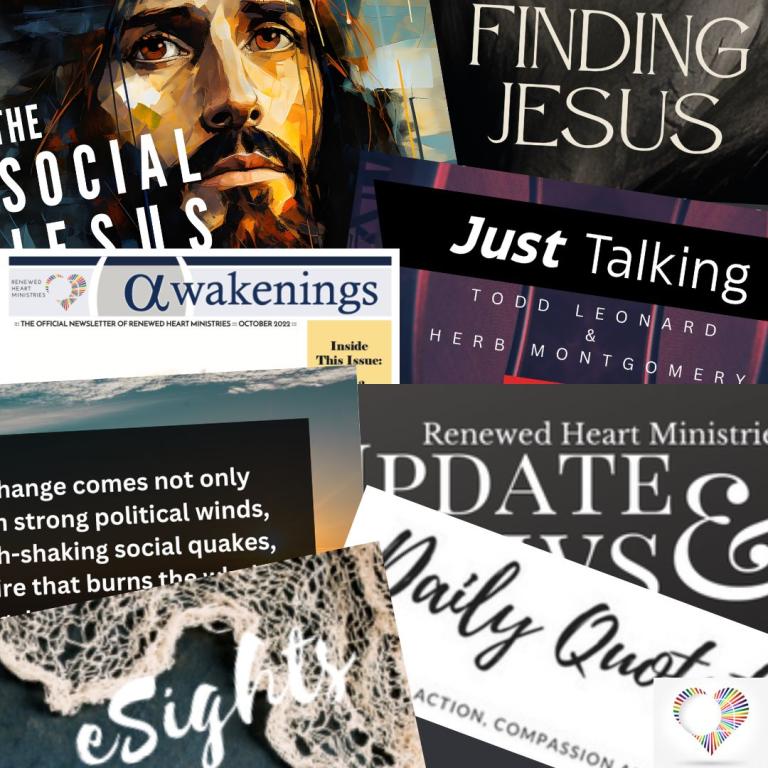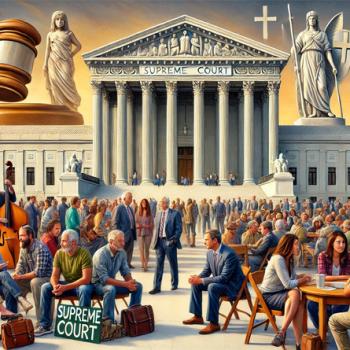
Here the Sabbath is directly tied to liberation and justice:
“Observe the Sabbath day by keeping it holy, as your Sovereign God has commanded you. Six days you shall labor and do all your work, but the seventh day is a sabbath to your Sovereign God. On it you shall not do any work, neither you, nor your son or daughter, nor your male or female servant, nor your ox, your donkey or any of your animals, nor any foreigner residing in your towns, so that your male and female servants may rest, as you do.Remember that you were slaves in Egypt and that your Sovereign God brought you out of there with a mighty hand and an outstretched arm. Therefore your Sovereign God has commanded you to observe the Sabbath day.” (Deuteronomy 5:12-15)
Welcome Readers! Please subscribe to Social Jesus Here.
(Read this series from the beginning at Part 1 and Part 2.)
The second story from our reading this week is about Jesus’ encounter with the man with the withered hand. In Jesus’ society, like today, there were ways of interpreting Sabbath observance that were life-giving and liberating, and that promoted and protected aspects of social justice. There were also ways of interpreting Sabbath observance that were oppressive and caused suffering. Mark’s gospel introduces those interpretations as early as chapter 1:
“That evening after sunset the people brought to Jesus all the sick and demon-possessed.” Mark 1:32
In Mark 1, the people don’t bring the sick to Jesus to be healed until the Sabbath is over. Rather than the Sabbath being a means of liberation, it is an obstacle to their liberation and they must wait until it’s over to reach life. This contradicts the Sabbath’s original purpose in the Torah. We should read Jesus’ question “Which is lawful on the Sabbath: to do good or to do evil, to save life or to kill?” in that context. Jesus is asking what the Sabbath in the Torah is really about: giving life or dealing death?
He could have heard the man with the withered hand in private and not created a scene, but in public defiance and as an act of civil disobedience, Jesus uses this moment to not only heal the man, but to also confront the system and those complicit in keeping people subjugated. We cannot forget the contrast Mark is making here between the synagogue rulers complicit with the Roman empire and Mark’s association of Jesus with Daniel’s Son of Man, who would liberate the people from oppressive, violent, and unjust empires. In Mark’s story, the Sabbath should not be an obstacle to people’s liberation that keeps them suppressed. The Sabbath is a time for restoration, liberation, healing, and a reconnection with life and those things which are life giving.
How might this inform our own justice work as Jesus followers today? Are there times when we have interpreted our Jesus following in ways that have become death dealing for our society? Is our practice of Christianity socially life-giving? Are we obstacles to those around us working toward a more just, safer, compassionate society with room for everyone or are we, like Mark’s Jesus, standing up to those obstacles and being conduits of love, life, and healing?
Where are we in the way? How can we get out of the way and come alongside, choosing to recognize those working to make our world a safer place for everyone, and adding our energy and effort to their work? Are we making it harder or easier to shape our world into a more socially just form? These Sabbath stories in Mark call each us to reassess our Jesus following and make sure we too, like the God of the Sabbath and like the Jesus in the gospel stories, are on the side of the oppressed, marginalized, and subjugated, working for a more just world.
Are you receiving all of RHM’s free resources each week?
Begin each day being inspired toward love, compassion, justice and action. Free.
Sign up at:
https://renewedheartministries.com/Contact-forms/?form=EmailSignUp
















